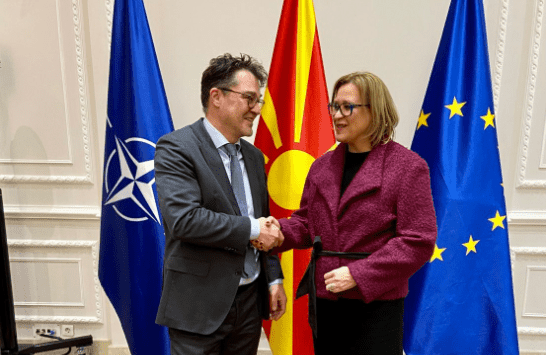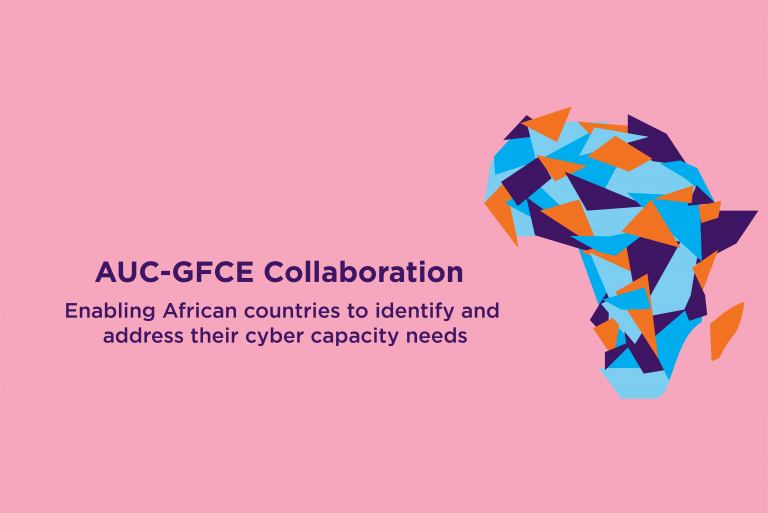GFCE Europe Regional Meeting 2024
The field of cyber capacity building is rapidly maturing. The Global Forum on Cyber Expertise (GFCE), as the multi-stakeholder platform for cyber capacity building, supports and addresses the needs of the community while reducing fragmentation of efforts. As part of the GFCE’s efforts to meet the needs of different regional stakeholders, the GFCE Regional Meeting […]
GFCE Europe Regional Meeting 2023
The GFCE Europe Regional Meeting took place back-to-back with the European Cyber Agora conference 2023 in Brussels, Belgium. Ms Tereza Horejsova, GFCE Outreach Manager, opened the regional meeting by sharing the context of regional efforts of the GFCE, which serve to better understand regional perspectives and capacity needs and translate them into specific activities to […]
GFCE Europe Regional Meeting 2021
In September 2021, the GFCE hosted a European Regional Meeting to discuss how to improve CCB coordination within Europe, especially in the region of Western Balkans, and how the GFCE can play a role and Partner with other important European actors. As highlighted in the meeting, there is a high need for better information sharing […]
GFCE Europe Regional Meeting 2022
The GFCE Europe Regional Meeting took place back-to-back with the European Cyber Agora conference 2023 in Brussels, Belgium. Ms Tereza Horejsova, GFCE Outreach Manager, opened the regional meeting by sharing the context of regional efforts of the GFCE, which serve to better understand regional perspectives and capacity needs and translate them into specific activities to […]
GFCE Secretariat Visits Skopje and Welcomes New Member – Republic of North Macedonia – to the GFCE Community.

On Friday 10th February 2023, by invitation of the Government of the Republic of North Macedonia, the GFCE Secretariat had the honor and pleasure to be in Skopje, North Macedonia, for a welcoming event to celebrate the recent GFCE Membership of North Macedonia, who are the 103rd Member of the GFCE. Deputy Prime Minister, Slavica […]
AUC-GFCE Collaboration: “Enabling African countries to identify and address their cyber capacity needs”

News Item | 8 March 2021 The Global Forum on Cyber Expertise is happy to announce its collaboration with the African Union Commission (AUC) on “Enabling African countries to identify and address their cyber capacity needs” through a two-year project. IntroductionDigital financial services can reach excluded and underserved populations quickly and efficiently, making it a vital strategic pillar […]
GFCE continues to grow: A warm welcome to Austria and Mauritius

News item | 16-10-2017 We are proud to announce Austria and Mauritius as the newest members of the GFCE community. This adds up to a total of 63 members united to strengthen global cyber capacity efforts. Please read a quick introduction of both members below. Austria The BKA recognizes the importance of strong global networks and prevention of duplication, […]
Countdown to the GFCE Annual Meeting 2017 in Brussels

News item | 29-05-2017 This week the GFCE will have its Annual Meeting in Brussels, which is kindly hosted by one of its members, the European Union. Participants from all continents and representing more than 75 countries, International organizations or private entities will gather in The Hotel in Brussels to share and discuss current and future […]
The EU Experience in Global Cyber Capacity and Institution Building
In recognizing the intersection between cyber resilience and development, the EU has defined cyber capacity building in third countries as a strategic building block of its 2013 Cybersecurity Strategy. Based on lessons learnt from traditional development cooperation and its internal experience and best practice, the EU has tailored a cyber capacity building model that aims […]
EU International Cyber Policy: promoting a free and secure global cybespace
Since the adoption of the EU Cybersecurity Strategy in 2013, EU has invested heavily in cyber stability and resilience internally and globally. Many new EU policy initiatives have advanced cyber security of companies and public organisations within the EU. The European Cybercrime Center was established to facilitate cooperation in fighting cybercrime, and new European legislation […]
